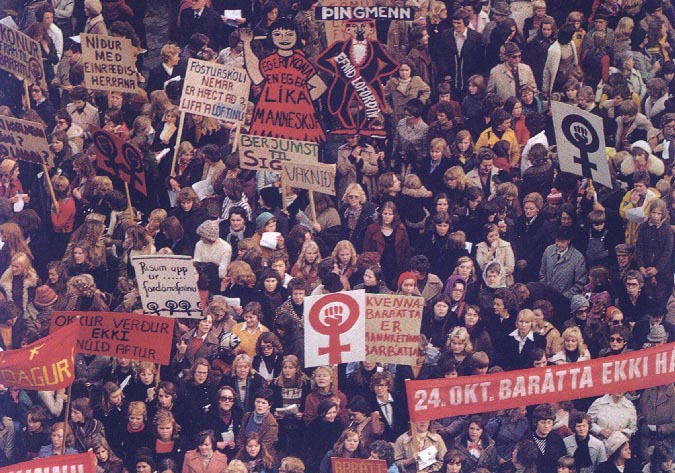Iceland Women's Strike (1975)
Fri Oct 24, 1975

Image: "VIÐ ERUM MARGAR": WE ARE MANY The largest mass demonstration in Icelandic history: More than 10% of the total population of Iceland participated in the women's rally in downtown Reykjavík. Photo by Ólafur K Magnússon
On this day in 1975, approximately 90% of Icelandic women struck for equality, not attending jobs or doing any domestic work. Iceland passed an equal pay law the following year, but the strike has been repeated on its anniversary several times since, such as in the years 2005, 2010, and 2016.
The strike was planned by "The Women's Congress", which had met on June 20th and 21st earlier that year. Among the reasons given for going on strike were pay inequality, lack of women in union leadership, and a general lack of recognition for the value and skill of domestic labor.
During the work stoppage, also known as "Women's Day Off", 25,000 people gathered in Reykjavik, Iceland's capital city, for a rally. There, women listened to speakers, sang, and talked to each other about what could be done to achieve gender equality in Iceland.
Women from many different backgrounds spoke, including a housewife, two members of parliament, and a worker. The last speech of the day was by Aðalheiður Bjarnfreðsdóttir, who "represented Sókn, the trade union for the lowest paid women in Iceland", according to The Guardian.
In 1976, the Icelandic government passed an equal pay law, and the country elected its first female President, Vigdís Finnbogadóttir, five years later in 1980.
The 1975 Women's Strike also helped inspire the 2016 "Black Monday" anti-abortion ban protests in Poland, as well as the "International Women's Strike", single day work stoppages on March 8th, 2017 and 2018.